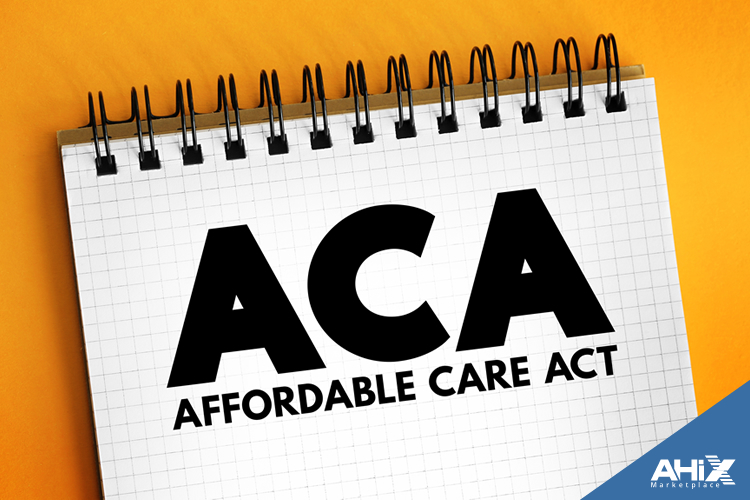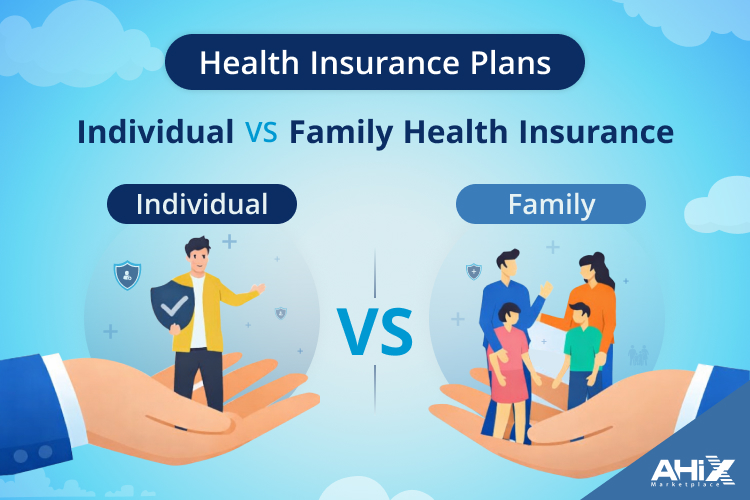Choosing the right health insurance plan can be confusing, especially when faced with options like short-term and ACA health insurance. While both offer ways to stay protected during medical emergencies or ongoing treatment, they differ significantly in coverage, cost, and flexibility. For individuals in transition between jobs, outside of enrollment windows, or simply weighing their health insurance options, knowing the difference between short-term vs ACA health insurance is essential.
In this blog, we break down what each plan includes, who it’s ideal for, and how to compare them effectively. Whether you’re seeking affordable coverage for just a few months or looking for a long-term solution that includes essential health benefits, understanding these two insurance types will help you make a smarter, better-informed choice.
What Is ACA Health Insurance?

ACA health insurance plans are government-regulated policies created under the Affordable Care Act to provide standardized, comprehensive coverage. These plans are required to include essential health benefits, such as preventive care, hospitalization, prescription drugs, maternity, and mental health services.
One of the defining features of Affordable Care Act coverage is its protection for individuals with pre-existing conditions; insurers cannot deny coverage or increase premiums based on medical history. This makes ACA plans particularly valuable for individuals with ongoing health needs.
Enrollment for these plans is typically limited to specific windows known as the open enrollment period, unless you qualify for a special enrollment due to life events like job loss, marriage, or childbirth. Plans are available through the health insurance marketplace, where individuals can compare premiums, deductibles, and out-of-pocket maximums.
Additionally, income-based subsidies help reduce monthly premiums for eligible applicants, making ACA options not only comprehensive but also financially accessible for many. These plans meet the legal definition of minimum essential coverage, which means they satisfy all federal health insurance requirements.
What Is Short-Term Health Insurance?

Short-term health insurance is a type of temporary coverage meant for people who need health insurance for just a short period. As of the latest rules, these plans can last up to 3 months, with the option to renew for one more month, giving you a maximum of 4 months of coverage.
These plans are not required to follow the same rules as ACA plans. That means they don’t cover pre-existing conditions, regular checkups, or many preventive services. Instead, they usually help with basic medical needs like emergency care or short-term doctor visits. Because the coverage is limited, the monthly cost is often lower, but you might pay more if something serious happens.
Short-term medical insurance is approved quickly—often within a day—and doesn’t require a long application. It’s best for people in between jobs, recent graduates, or anyone who’s waiting for other insurance to start. But it’s important to read the details carefully. Each plan can be different, and many don’t include things like prescriptions or ongoing treatment.
Key Differences Between Short-Term and ACA Plans
When you compare ACA and short-term plans, several major differences stand out. Each option is designed for a different purpose, and knowing how they stack up can help you make the right decision for your situation.
Coverage
- ACA health plans include a full set of essential health benefits like preventive care, maternity, mental health, and prescriptions.
- Short-term health insurance covers fewer services and may exclude pre-existing conditions, mental health, and prescription drugs.
Cost
- Short-term plans usually offer lower monthly premiums, but they also come with higher out-of-pocket costs and fewer protections.
- ACA plans may have higher premiums but often include cost-sharing reductions or subsidies based on income.
Enrollment
- ACA plans can only be purchased during a set enrollment period, unless you qualify for a special enrollment event like job loss or marriage.
- Temporary health insurance can be applied for at any time and starts quickly—often within 24 hours.
Duration
- ACA coverage is designed for year-round, long-term protection.
- Short-term coverage is limited to 3 months, with a 1-month renewal, offering a total of up to 4 months.
Who Regulates the Plan
- ACA plans are regulated by federal law and must meet strict standards.
- Short-term plans are regulated at the state level, so rules and availability may vary depending on where you live.
This side-by-side view of temporary health insurance vs Obamacare shows how different they really are. Choosing the right one depends on your health needs, budget, and how long you need coverage.
Cost Comparison: Premiums, Deductibles & Out-of-Pocket Limits
| Cost Factor | ACA Health Insurance | Short-Term Health Insurance |
| Monthly Premiums | Higher (but may be reduced through subsidies) | Lower, but no financial assistance available |
| Deductibles | Often moderate to high, but capped annually | Can be high depending on the plan |
| Out-of-Pocket Maximum | Legally capped (includes deductibles, copays, and coinsurance) | Often has no official cap; can lead to high expenses |
| Financial Assistance | Subsidies and tax credits available through marketplace | Not eligible for any cost-sharing or subsidies |
| What You Pay for Care | Varies by plan. | Varies by plan. |
| Overall Affordability | Better for long-term affordable health coverage with support | Lower short-term costs, higher risk of big bills later |
Who Should Consider ACA Plans?
ACA health plans are ideal for individuals who need full, reliable health coverage. If you have a pre-existing condition, require regular prescriptions, or anticipate medical visits throughout the year, an ACA plan offers the consistency and protection you’re looking for.
These plans are also a strong fit for families, older adults, and anyone who qualifies for subsidies or cost-sharing based on income. The ability to lower monthly premiums makes ACA insurance both accessible and predictable.
Additionally, ACA plans are the only option if you want comprehensive coverage that includes maternity, mental health services, and pediatric care. And if you’ve recently experienced a qualifying life event like losing a job or moving, you may be eligible for special enrollment, giving you access outside the usual sign-up window.
If your priority is long-term protection and legal coverage with financial safeguards, ACA plans are the most reliable route.
Who Might Benefit from Short-Term Plans?
Short-term health insurance benefits individuals who need quick coverage, typically for a few weeks or months. If you’re between jobs, waiting for employer benefits to begin, or recently aged off a parent’s plan, short-term coverage can fill that temporary gap.
It’s also a reasonable option for healthy individuals who rarely visit a doctor and want protection in case of sudden illness or injury. Because these plans don’t cover pre-existing conditions or routine care, they work best for people without ongoing medical needs.
The fast enrollment process, often with next-day activation, makes them useful in urgent situations where immediate coverage is needed but a full ACA plan isn’t accessible. For many, the lower upfront cost is appealing when coverage is only needed for a short period, like during travel or seasonal work.
However, the key benefit is timing and flexibility, not depth of coverage. For limited, short-term needs, these plans can serve as a cost-effective bridge.
Pros and Cons of Short-Term vs ACA Health Insurance

When deciding between short-term and ACA health insurance, it’s important to understand how each option meets different needs. The table below highlights the key pros and cons of both plans, helping you compare their benefits, limitations, and suitability based on your coverage goals and timeline.
| Category | Short-Term Health Insurance | ACA Health Insurance |
|---|---|---|
| Pros | Coverage can start quickly, often within 24 hours | Includes full coverage: preventive care, prescriptions, maternity, mental health |
| Lower monthly premiums compared to ACA plans | Protects individuals with pre-existing conditions | |
| Available year-round without open enrollment restrictions | Offers income-based subsidies to reduce premium costs | |
| Suitable for temporary needs like job transitions or waiting periods | Meets minimum essential coverage requirements | |
| Simple application process with flexible terms for short durations | Capped out-of-pocket costs provide long-term financial protection | |
| Cons | Does not cover pre-existing conditions or preventive services | Higher monthly premiums if subsidies are not available |
| Excludes many benefits like maternity, mental health, and prescriptions | Only accessible during open enrollment or qualifying life events | |
| Limited to a 3-month term with one possible 1-month renewal | Application process can take longer and may involve more documentation | |
| High out-of-pocket costs and coverage caps may apply | Not ideal for very short-term coverage needs | |
| Not designed for long-term or chronic healthcare needs | Comparing plans and networks may require more research |
ACA vs. Short-Term: Which One Is Right for You?
Choosing which is better ACA or short-term health insurance plans comes down to your specific situation.
If you need long-term coverage that protects against major health costs, includes regular care, and doesn’t limit treatment based on your medical history, ACA is the better fit. It’s especially suited for those managing chronic conditions or who want peace of mind with full coverage.
On the other hand, if your priority is low-cost protection for a short period, and you’re not dealing with ongoing health issues, short-term coverage offers flexibility and fast access. It’s a practical option when you need temporary coverage and can manage some financial risk.
Your decision should consider three things:
- How long you need coverage
- What kind of care you expect to use
- How much risk you’re willing to take if an emergency occurs
The right choice isn’t about which plan is “best” in general—it’s about which plan matches your needs right now.
Final Thoughts:
Choosing between short-term and ACA health insurance depends on what you need and how long you need it. ACA plans give you full coverage, including care for pre-existing conditions, regular checkups, and more, but they cost more and are only available during certain times of the year. Short-term plans are easier to get, cost less, and work well if you only need coverage for a short period. However, they don’t include many important benefits.
If you’re unsure which option fits your situation, AHiX is here to help. Our licensed advisors can explain the differences clearly and help you compare plans based on your health, budget, and coverage timeline. Whether you need something short-term or long-term, we’ll help you make a confident choice. Finding the right health insurance doesn’t have to be confusing. AHiX makes it easier to choose the coverage that truly fits your life.
FAQs:
1. What’s the difference between short-term and ACA health insurance?
ACA insurance offers full coverage, including preventive care, prescription drugs, and pre-existing conditions. Short-term insurance provides limited benefits and is designed for temporary needs, like when you’re between jobs or waiting for other coverage to begin.
2. Is short-term health insurance a good alternative to ACA plans?
It can be a temporary alternative if you’re healthy and don’t need ongoing care. However, it lacks many essential benefits and is not a replacement for comprehensive coverage.
3. Does short-term health insurance meet federal coverage requirements?
No. Short-term plans do not qualify as minimum essential coverage under the Affordable Care Act and may not protect you from state-level penalties where applicable.
4. Can I buy a short-term plan and then switch to an ACA plan later?
Yes, but you can only enroll in an ACA plan during open enrollment or if you qualify for a special enrollment period. You cannot switch to ACA coverage at any time without meeting those conditions.
5. How long does short-term health insurance last under current rules?
Under federal rules, short-term plans can last up to 3 months, with the option to renew for one additional month, for a maximum of 4 months of coverage.
6. Are ACA plans more expensive than short-term insurance?
ACA plans generally have higher premiums but offer more coverage. Short-term plans cost less upfront but may lead to higher out-of-pocket expenses due to limited benefits.
7. Can I get help paying for ACA insurance?
Yes. If your income meets certain guidelines, you may qualify for subsidies or tax credits that lower your monthly premium and out-of-pocket costs.
8. Do short-term plans cover emergency room visits?
Some short-term plans include emergency coverage, but limits and exclusions apply. Always check the policy details to know what’s covered and how much you’ll pay.
9. Is there a waiting period for short-term health insurance to start?
No. Short-term insurance typically starts within 24 hours of approval, making it one of the fastest options for getting temporary coverage.
10. Can I renew a short-term plan once it ends?
You may be able to renew once for an extra month, but you cannot extend the plan beyond 4 months under federal guidelines with the same insurance company. Some states may have stricter rules.
11. Do ACA plans cover prescription drugs and mental health services?
Yes. All ACA plans are required to include prescription drug coverage, mental health services, and other essential benefits as part of their standard coverage.
12. What happens if I only have short-term insurance and get seriously ill?
You could face high medical bills, as short-term plans often exclude coverage for major or long-term conditions and have annual or lifetime payout limits.
13. Who should avoid short-term health insurance?
Anyone with ongoing medical needs, prescriptions, or pre-existing conditions should avoid short-term coverage, as it typically excludes those services.
14. Is short-term health insurance available in every state?
No. Some states ban or heavily restrict short-term plans. Availability, duration, and renewability rules vary by location, so check state regulations before applying.
15. Can I cancel a short-term health plan at any time?
Yes. Most short-term plans allow you to cancel at any time without penalties, but you won’t get a refund for unused days unless the insurer offers prorated cancellation terms.



